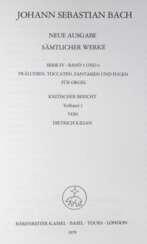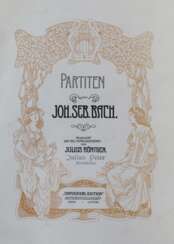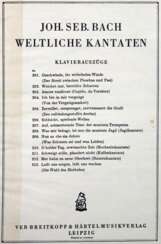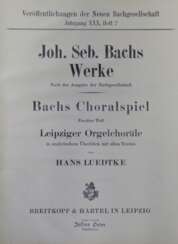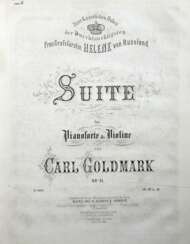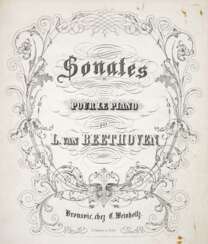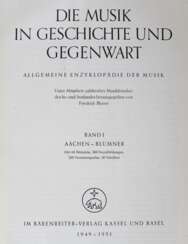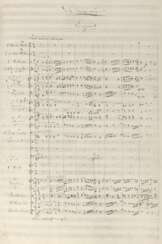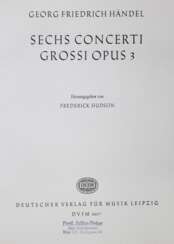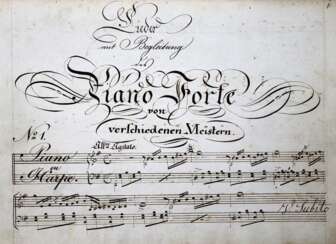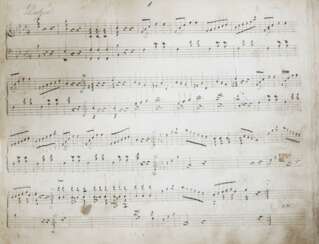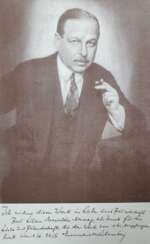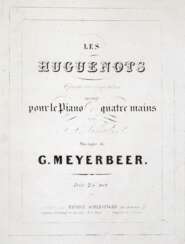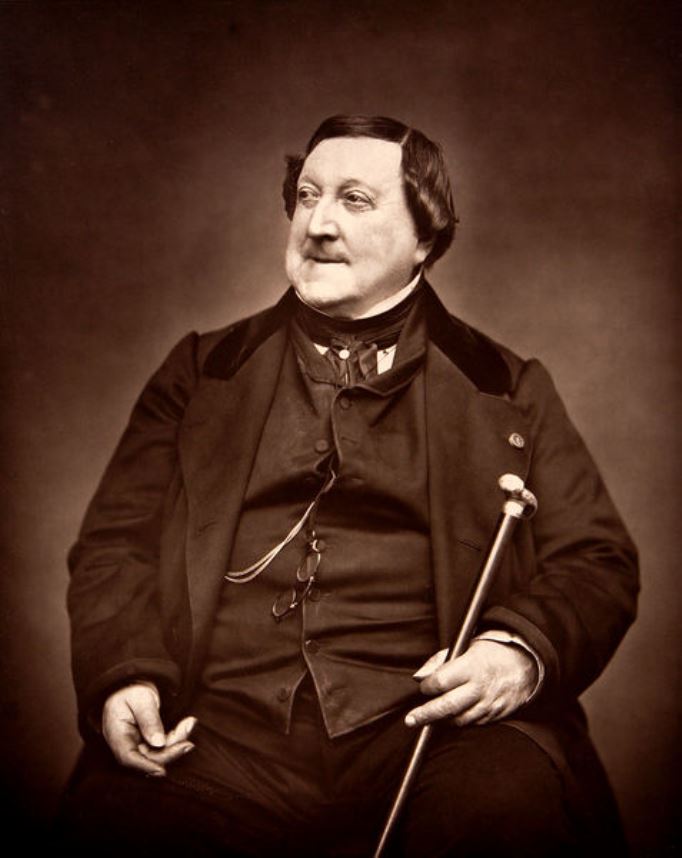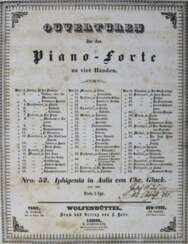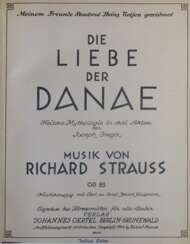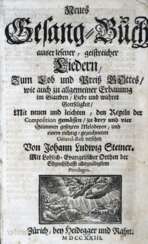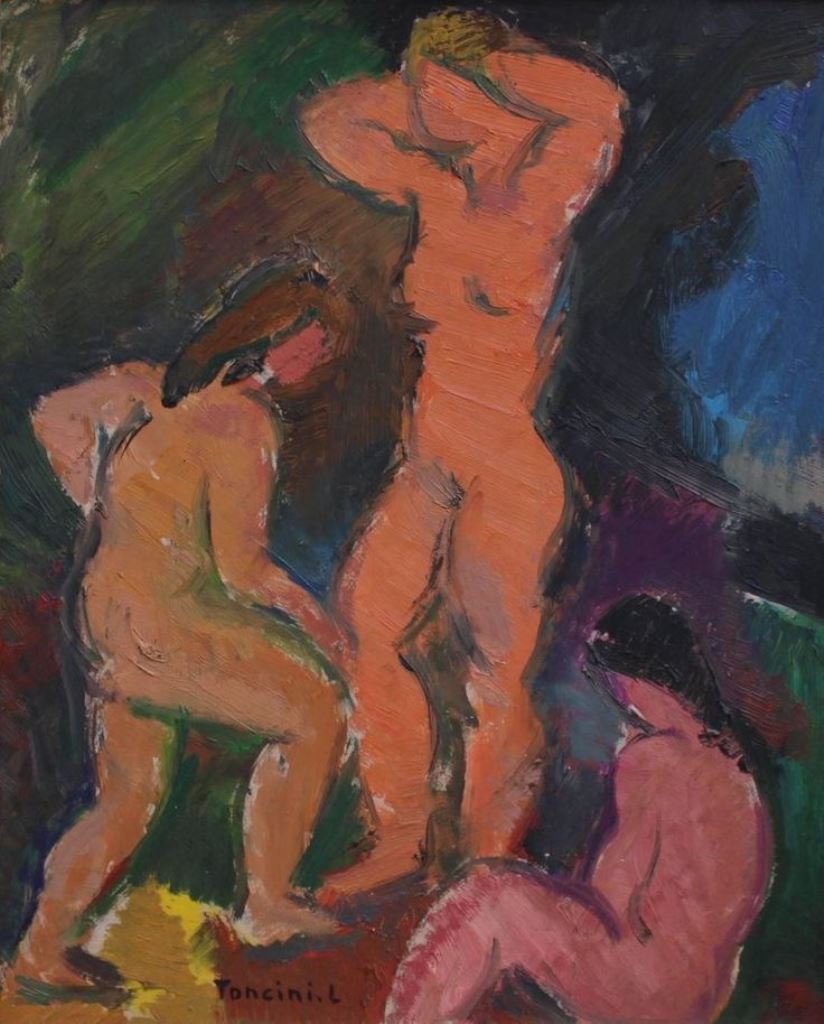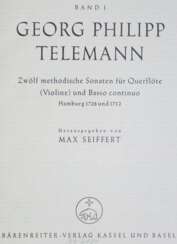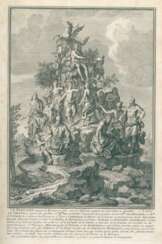
Music — A129-1: Alte Drucke, Handschriften und Kunstwissenschaft
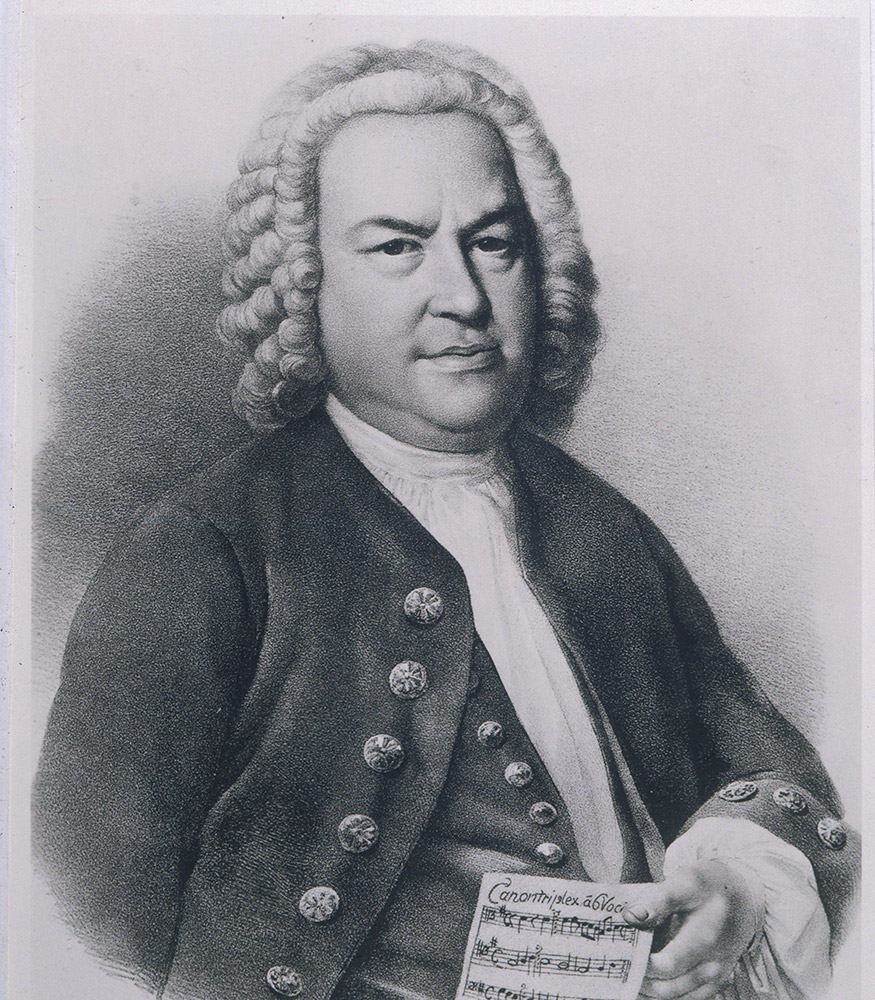
Johann Sebastian Bach was a German Baroque composer, Kapellmeister, organist and teacher.
Johann Sebastian Bach was the youngest child in the family of musician Johann Ambrosius Bach (1645-1695) and belonged to a large family of North German musicians whose dynasty he himself traced back to his great-great-grandfather Veit Bach, a Lutheran baker in the late 16th century. Johann was orphaned at an early age and was taken into care by his older brother, the organist Johann Christoph Bach. In August 1703 he was appointed official organist of the church in Arnstadt, then from 1714 he worked as Kapellmeister and concertmaster at the Weimar court, to which time his first compositions date. In 1736 he was appointed court composer to the King of Saxony, thus recognizing his merits as a composer and organist. While working as a concertmaster, Bach also mastered almost all the instruments in the orchestra.
In the last years of his life, Bach was nearly blind and living poorly, and his Baroque music was considered outdated as tastes changed. But in the 19th century, interest in Bach's works increased dramatically, and he became the favorite composer of many subsequent musicians. Johann Sebastian's sons Wilhelm Friedemann, Carl Philipp Emanuel and Johann Christian continued the family dynasty and also became musicians. And Johann Sebastian Bach himself was surrounded by students throughout his life.
Although his contemporaries admired Bach's playing on the harpsichord and organ, today it is his compositions that are considered some of the finest works of mature Baroque music. His most widely known works today include the Brandenburg Concertos, the Well-Tempered Clavier, the Masses in B minor, and many other masterpieces of church and instrumental music. Bach's rich legacy includes sacred and secular compositions, especially cantatas, organ pieces and concertos (Bach composed more than 1,000 musical works in all significant genres of his time, except opera), which influenced many later composers. Johann Sebastian Bach was able to encompass and unite the major styles, forms and national traditions developed in previous generations. Today he is considered one of the greatest composers of all time.

Johann Sebastian Bach was a German Baroque composer, Kapellmeister, organist and teacher.
Johann Sebastian Bach was the youngest child in the family of musician Johann Ambrosius Bach (1645-1695) and belonged to a large family of North German musicians whose dynasty he himself traced back to his great-great-grandfather Veit Bach, a Lutheran baker in the late 16th century. Johann was orphaned at an early age and was taken into care by his older brother, the organist Johann Christoph Bach. In August 1703 he was appointed official organist of the church in Arnstadt, then from 1714 he worked as Kapellmeister and concertmaster at the Weimar court, to which time his first compositions date. In 1736 he was appointed court composer to the King of Saxony, thus recognizing his merits as a composer and organist. While working as a concertmaster, Bach also mastered almost all the instruments in the orchestra.
In the last years of his life, Bach was nearly blind and living poorly, and his Baroque music was considered outdated as tastes changed. But in the 19th century, interest in Bach's works increased dramatically, and he became the favorite composer of many subsequent musicians. Johann Sebastian's sons Wilhelm Friedemann, Carl Philipp Emanuel and Johann Christian continued the family dynasty and also became musicians. And Johann Sebastian Bach himself was surrounded by students throughout his life.
Although his contemporaries admired Bach's playing on the harpsichord and organ, today it is his compositions that are considered some of the finest works of mature Baroque music. His most widely known works today include the Brandenburg Concertos, the Well-Tempered Clavier, the Masses in B minor, and many other masterpieces of church and instrumental music. Bach's rich legacy includes sacred and secular compositions, especially cantatas, organ pieces and concertos (Bach composed more than 1,000 musical works in all significant genres of his time, except opera), which influenced many later composers. Johann Sebastian Bach was able to encompass and unite the major styles, forms and national traditions developed in previous generations. Today he is considered one of the greatest composers of all time.

Johann Sebastian Bach was a German Baroque composer, Kapellmeister, organist and teacher.
Johann Sebastian Bach was the youngest child in the family of musician Johann Ambrosius Bach (1645-1695) and belonged to a large family of North German musicians whose dynasty he himself traced back to his great-great-grandfather Veit Bach, a Lutheran baker in the late 16th century. Johann was orphaned at an early age and was taken into care by his older brother, the organist Johann Christoph Bach. In August 1703 he was appointed official organist of the church in Arnstadt, then from 1714 he worked as Kapellmeister and concertmaster at the Weimar court, to which time his first compositions date. In 1736 he was appointed court composer to the King of Saxony, thus recognizing his merits as a composer and organist. While working as a concertmaster, Bach also mastered almost all the instruments in the orchestra.
In the last years of his life, Bach was nearly blind and living poorly, and his Baroque music was considered outdated as tastes changed. But in the 19th century, interest in Bach's works increased dramatically, and he became the favorite composer of many subsequent musicians. Johann Sebastian's sons Wilhelm Friedemann, Carl Philipp Emanuel and Johann Christian continued the family dynasty and also became musicians. And Johann Sebastian Bach himself was surrounded by students throughout his life.
Although his contemporaries admired Bach's playing on the harpsichord and organ, today it is his compositions that are considered some of the finest works of mature Baroque music. His most widely known works today include the Brandenburg Concertos, the Well-Tempered Clavier, the Masses in B minor, and many other masterpieces of church and instrumental music. Bach's rich legacy includes sacred and secular compositions, especially cantatas, organ pieces and concertos (Bach composed more than 1,000 musical works in all significant genres of his time, except opera), which influenced many later composers. Johann Sebastian Bach was able to encompass and unite the major styles, forms and national traditions developed in previous generations. Today he is considered one of the greatest composers of all time.

Johann Sebastian Bach was a German Baroque composer, Kapellmeister, organist and teacher.
Johann Sebastian Bach was the youngest child in the family of musician Johann Ambrosius Bach (1645-1695) and belonged to a large family of North German musicians whose dynasty he himself traced back to his great-great-grandfather Veit Bach, a Lutheran baker in the late 16th century. Johann was orphaned at an early age and was taken into care by his older brother, the organist Johann Christoph Bach. In August 1703 he was appointed official organist of the church in Arnstadt, then from 1714 he worked as Kapellmeister and concertmaster at the Weimar court, to which time his first compositions date. In 1736 he was appointed court composer to the King of Saxony, thus recognizing his merits as a composer and organist. While working as a concertmaster, Bach also mastered almost all the instruments in the orchestra.
In the last years of his life, Bach was nearly blind and living poorly, and his Baroque music was considered outdated as tastes changed. But in the 19th century, interest in Bach's works increased dramatically, and he became the favorite composer of many subsequent musicians. Johann Sebastian's sons Wilhelm Friedemann, Carl Philipp Emanuel and Johann Christian continued the family dynasty and also became musicians. And Johann Sebastian Bach himself was surrounded by students throughout his life.
Although his contemporaries admired Bach's playing on the harpsichord and organ, today it is his compositions that are considered some of the finest works of mature Baroque music. His most widely known works today include the Brandenburg Concertos, the Well-Tempered Clavier, the Masses in B minor, and many other masterpieces of church and instrumental music. Bach's rich legacy includes sacred and secular compositions, especially cantatas, organ pieces and concertos (Bach composed more than 1,000 musical works in all significant genres of his time, except opera), which influenced many later composers. Johann Sebastian Bach was able to encompass and unite the major styles, forms and national traditions developed in previous generations. Today he is considered one of the greatest composers of all time.
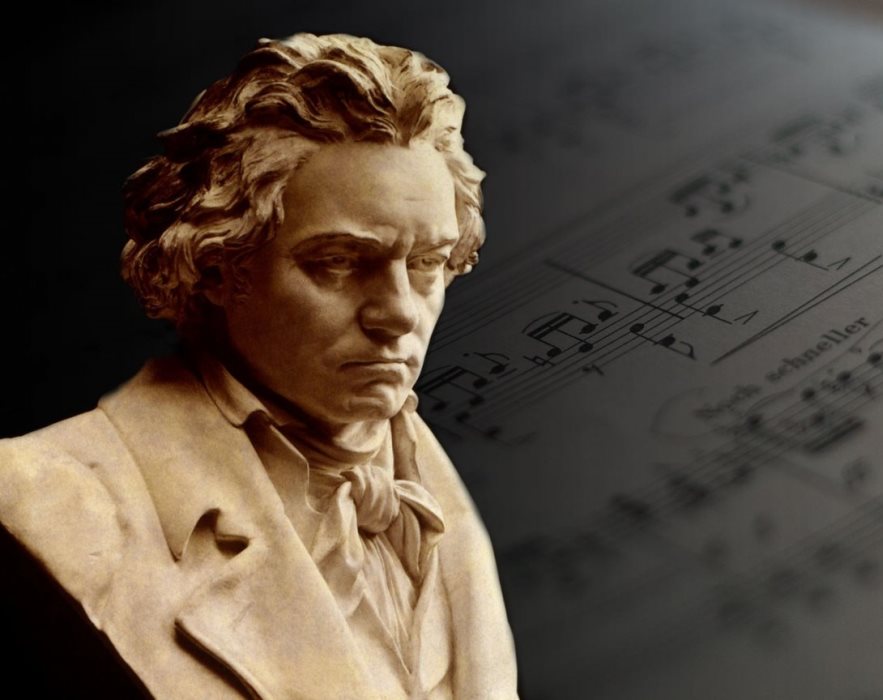
Ludwig van Beethoven was a German composer, pianist, and conductor, one of the most famous and celebrated composers in world history.
Beethoven showed an aptitude for music at a very early age; from the age of four his father began to teach him. Beethoven's early works - piano sonatas and symphonies - were composed under the strong influence of the music of the great classical composers Joseph Haydn and Wolfgang Amadeus Mozart. As Beethoven matured, however, he began to experiment with new forms and harmonic sequences, and his music became more complex and emotionally charged.
Unfortunately, at the height of his talent, Beethoven began to gradually lose his hearing, to the point of complete deafness by the end of his life. Despite this, he continued to compose and conduct, using special devices to feel the vibrations of the music.
Beethoven's work is considered pivotal in classical music and is a bridge between the classical and Romantic eras. His works vividly express a wide range of emotions, from triumph and joy to sadness and despair. Beethoven was also one of the first composers to include soloists and chorus in his symphonies. Beethoven's best-known works include nine symphonies, 32 piano sonatas, 16 string quartets and the heroic opera Fidelio. These and many other works have cemented Beethoven's place in music history as one of the greatest composers of all time. His music continues to be played and studied by musicians and music lovers around the world.

Ludwig van Beethoven was a German composer, pianist, and conductor, one of the most famous and celebrated composers in world history.
Beethoven showed an aptitude for music at a very early age; from the age of four his father began to teach him. Beethoven's early works - piano sonatas and symphonies - were composed under the strong influence of the music of the great classical composers Joseph Haydn and Wolfgang Amadeus Mozart. As Beethoven matured, however, he began to experiment with new forms and harmonic sequences, and his music became more complex and emotionally charged.
Unfortunately, at the height of his talent, Beethoven began to gradually lose his hearing, to the point of complete deafness by the end of his life. Despite this, he continued to compose and conduct, using special devices to feel the vibrations of the music.
Beethoven's work is considered pivotal in classical music and is a bridge between the classical and Romantic eras. His works vividly express a wide range of emotions, from triumph and joy to sadness and despair. Beethoven was also one of the first composers to include soloists and chorus in his symphonies. Beethoven's best-known works include nine symphonies, 32 piano sonatas, 16 string quartets and the heroic opera Fidelio. These and many other works have cemented Beethoven's place in music history as one of the greatest composers of all time. His music continues to be played and studied by musicians and music lovers around the world.
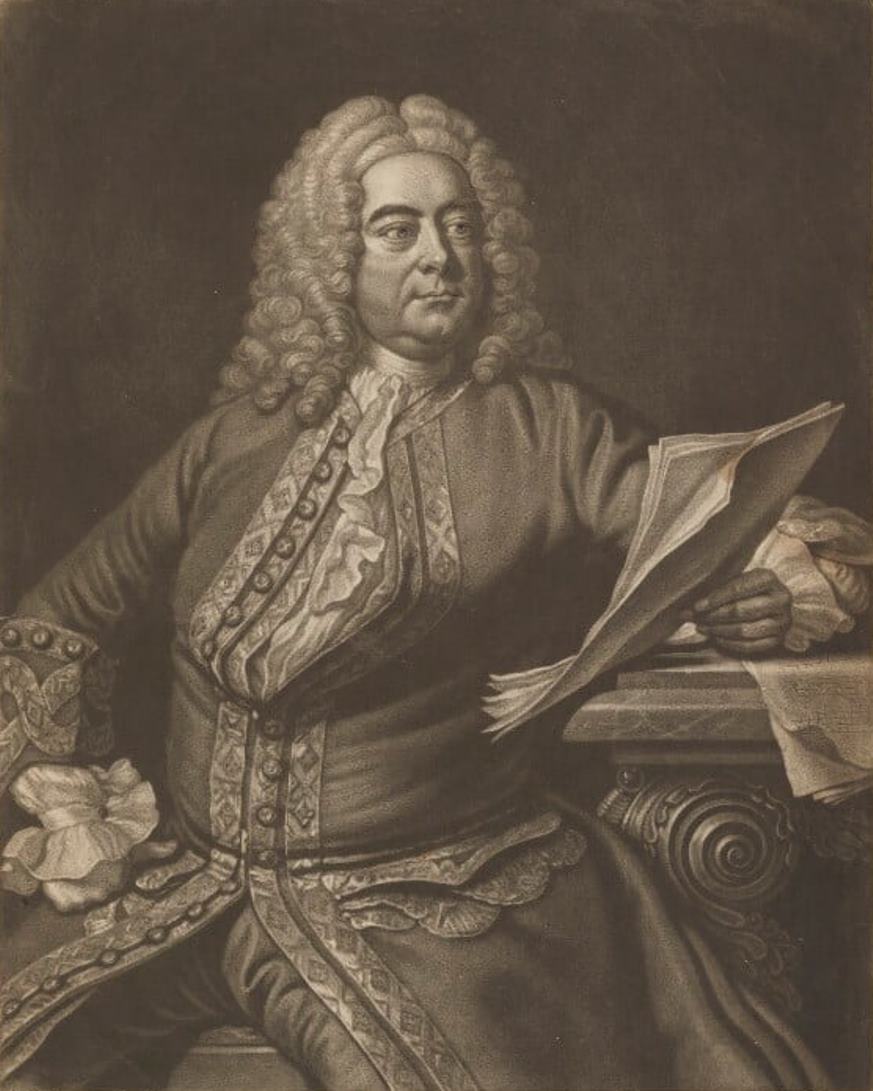
George Frideric Handel was a German-born English composer of the Baroque period.
After receiving a musical education, Handel worked briefly as an organist at the cathedral in Halle, then joined the violin section of the opera orchestra in Hamburg. After spending several years in Italy, he wrote many works there, including two operas. The style of Italian music permeated the composer's work throughout his life. Having become famous in Italy, in 1710 Handel was appointed Kapellmeister to the Elector of Hanover, the future King George I of England, and two years later he was already staging his operas in London.
In 1727 Handel became a British subject and was appointed composer to the Chapel Royal. In this capacity he wrote many musical works. From 1720 to 1728, operas at the Royal Theater in London were staged by the Royal Academy of Music, and Handel wrote the music for most of them.
In 1741, Handel wrote the most famous of his many oratorios, Messiah. Handel had a talent for musically portraying a human character in a single scene or aria - a gift he used with great dramatic power in his operas and oratorios. Although much of his music was vocal, Handel was also one of the recognized instrumental composers of the late Baroque era. Handel paid tribute to church music by composing many solemn hymns.
Handel's music has become an integral part of the national culture of England, and in Germany he is also honored as a major national composer.


